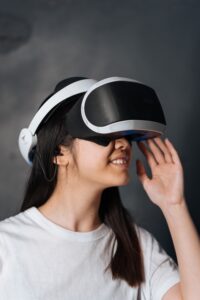
Physical Life as a Perceptual Illusion
The concept of reality has been debated by philosophers for centuries, and while we may never fully understand it, some scientists and philosophers have suggested that physical life is a perceptual illusion. This idea suggests that the reality we experience is not as concrete as we once thought, and that our senses play a large role in shaping our perception of the world around us.
At its core, the theory of physical life as a perceptual illusion proposes that our brains construct the world we perceive, and that the reality we experience is a result of this construction. This means that what we see, hear, taste, smell, and feel is not an objective representation of the world, but rather a subjective interpretation of the information our senses provide.
To understand this concept more deeply, it’s helpful to consider some of the ways in which our senses can deceive us. For example, we know that optical illusions can trick our brains into perceiving something that isn’t actually there. Similarly, our sense of touch can be fooled by tactile illusions, such as the sensation of a phantom limb after amputation. These examples demonstrate that what we perceive is not always an accurate representation of reality.
But how does this relate to the idea that physical life is a perceptual illusion? The theory suggests that our entire experience of reality is constructed by our brains, and that there may be no objective reality beyond our perception of it. This means that the physical world we experience is not necessarily a concrete, objective reality, but rather a subjective interpretation of the information our senses provide.

This idea may seem radical, but it is supported by some scientific research. For example, studies have shown that the brain can fill in gaps in our perception of reality, creating a coherent picture of the world even when our senses are incomplete. Additionally, research on brain plasticity suggests that our brains can adapt to new sensory input, creating new neural pathways to interpret and integrate information from the world around us.
While the theory of physical life as a perceptual illusion is intriguing, it raises a number of questions and challenges. One of the main challenges is the question of whether our perception of reality can be truly divorced from objective reality. While it’s true that our perception of the world is subjective, it’s also true that there are objective phenomena that exist beyond our perception of them. For example, the laws of physics and the behavior of particles exist whether or not we are aware of them.
Another challenge to this theory is the question of how we can know anything about the world if our perception of it is subjective. If our senses are not providing an accurate representation of reality, how can we trust any information we gather about the world around us? While this is a valid question, it’s important to remember that our perception of reality is still useful in navigating the world, even if it may not be an objective representation of reality.
Despite these challenges, the theory of physical life as a perceptual illusion is a fascinating one that challenges our assumptions about the nature of reality. By suggesting that our perception of the world is not an objective reality, but rather a subjective interpretation of sensory input, this theory raises important questions about the nature of consciousness and the limits of human knowledge.
Ultimately, whether or not physical life is a perceptual illusion is a question that may never be fully





